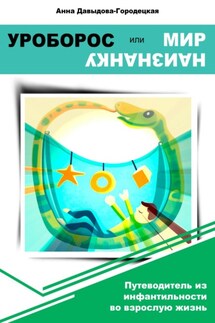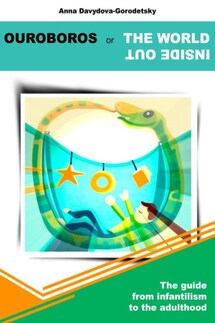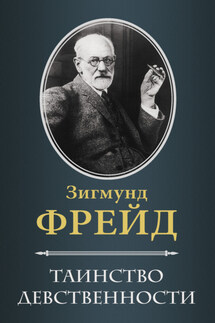Ouroboros or the world inside out - страница 15
If we want to free ourselves from this ouroboric captivity, we need to stop looking at other people as resources to be consumed. We must stop viewing those who have what we need, whether material or not, as very desirable to the point of trembling in our knees. We have to stop manipulating reality by keeping such a person close to us and forcing them to give us what we want.
As soon as there is a feeling that someone is “the one,” and we try to involve this person in our orbit and keep them there by any means, we enter the “eye of a needle” of an ouroboric dream – the trap has slammed shut. We are in illusion, and no matter how hard we try, no matter what we do for this person, no matter what role we play in our personal performance, nothing will work out.
This deep-seated hunger for a mother's breast, this primordial anguish, cannot be satiated by anything – neither food nor communication. Food may lead to obesity, and having a partner may lead to disappointment. If we form a couple to satisfy this hunger or anguish, we are bound to realize that the other person cannot fulfill it, leading to disappointment when they "promise but do not deliver".
I will revisit this topic when I discuss devaluation, as the mechanism of ouroboric falling in love is closely linked to the infantile personality's consumerist attitude towards others and life in general.
When an ouroboric personality is interested in someone, this interest is often presented with a sense of their own greatness. "I wanted it – you came to teach me. I will use you but idealize you for it – this is my payment to you. You are both the attendant and the ideal, while I am both the learner and the master".
Such manipulations cannot foster a trustful, empathetic communication because the counterpart will likely sense the manipulation and resist being used, especially if they have a realistic view of themselves and the other person. Fortunately, my friend eventually recognized the pathological nature of her infantile communication style, and we developed a comfortable relationship. While we may not be fully "grown up", we aspire to grow, with depth, mutual respect, and sincere empathy.
But if the manipulation is presented not as a display of greatness, but as sudden feelings from meeting someone, especially against the backdrop of loneliness and ouroboric anguish of the same infantile subject, the bait can be easily taken. Both parties may be drawn into a fascinating game of "dream come true," likely mutual, with an obvious sad outcome of mutual claims, as happened in my life. Many years later, after my divorce, I realized that this was the pattern I followed when I entered into marriage. I placed hopes for my future well-being on my husband, which he simply could not fulfill due to his personality traits, and then blamed him when things did not work out as planned.
In hindsight, it was clear from the beginning that this man would not be able to give me what I wanted from him; he simply did not have the capacity to realize my dreams. To be fair, my husband-to-be at that time also saw me as a "dream fulfillment person," which explains the sudden burst of love and hasty marriage. We both played this game with each other and paid for it with fifteen years of a painful marriage.
Such unconscious longing and loneliness may be the cause of eating disorders (ED), where eating helps to drown out not only hunger but also anguish (in my case, from loneliness). I think ED is a continuous loop in the ouroboric structure of auto- sado-maso: anguish → overeating → auto-aggression from being overweight → starvation → hunger → anguish.







